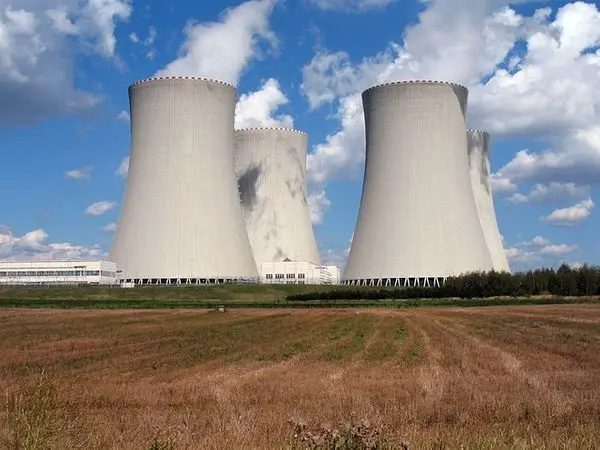By APD writer Alice
Southeast Asian countries are taking steps to revive dormant nuclear energy plans through recently-proposed regulatory changes.
In Indonesia, a draft law on job creation contains provisions intended to encourage private sector investment in nuclear energy. The bill is submitted to parliament in February and President Joko Widodo is seeking to finalize deliberations in the next few months.
The draft law says proposed changes to the 1997 law on nuclear energy aim "to make it easier for the public, especially the private sector, to obtain business permits in the nuclear power sector."
The central government will be the sole authority to grant business permits directly to companies engaged in the radioactive minerals mining, or development and/or operation of nuclear power plants, according to new provisions.
Indonesia has been nurtured its nuclear ambition since the establishment of the National Nuclear Energy Agency, or Batan in 1958. The agency currently runs three research-scale nuclear reactors in the country with a combined capacity of around 30 megawatts.
Last year, a number of nuclear talks took place. Some lawmakers called for nuclear power development to guarantee electricity supply for industrial activities. State utility Perusahaan Listrik Negara and US nuclear energy startup ThorCon International reportedly planned a preliminary study for a $1.2 billion development of a 500MW reactor that uses thorium rather than uranium.
Proponents argue nuclear is cheaper than other renewable energy sources, and so will help Indonesia boost the renewables portion in its energy mix, up from the current 12%. The government is targeting an increase of 23% by 2025 for renewables.
Meanwhile, in the Philippines, during a cabinet meeting early this month, Energy Secretary Alfonso Cusi continued to propose President Rodrigo Duterte include nuclear in the country's energy structure. A draft of the executive order was proposed in February, underscoring the secretary's determination to get formal backing from the president.
The Philippine government's interest in nuclear power comes amid warming ties with Russia, which proposed nuclear power projects for the country during Duterte's visit to Moscow in October. Russia's Rosatom State Atomic Energy Corporation would conduct a pre-feasibility study for small modular nuclear reactors.
The country is also considering a proposal to revive an existing nuclear power plant on the Bataan Peninsula, west of Manila.
The Philippines is one of the countries with the highest electricity prices in Asia and is sometimes hit by rolling blackouts in summer -- when demand peaks -- or when power plants undergo maintenance. In 2018, 52% of Philippines power requirements were sourced from coal, 23% from renewable energy, 21% from natural, and the rest from oil-based sources like diesel and gas turbines.
Indonesia and the Philippines are not the only Southeast Asian nations with nuclear plant aspirations. Amid surging energy demand and a backlash against coal, other emerging economies in the region have had their plans to build nuclear plants.
In 2016, Vietnam prepared to construct a nuclear plant but its National Assembly halted the project later the same year. In 2017, Thailand signed an agreement with China to cooperate on the peaceful use of nuclear energy. Malaysia had targeted having its first nuke plant by 2021 and extended it after 2030 before Mahathir Mohamad said no to nuclear when he became prime minister in 2018.
(ASIA PACIFIC DAILY)
 简体中文
简体中文





